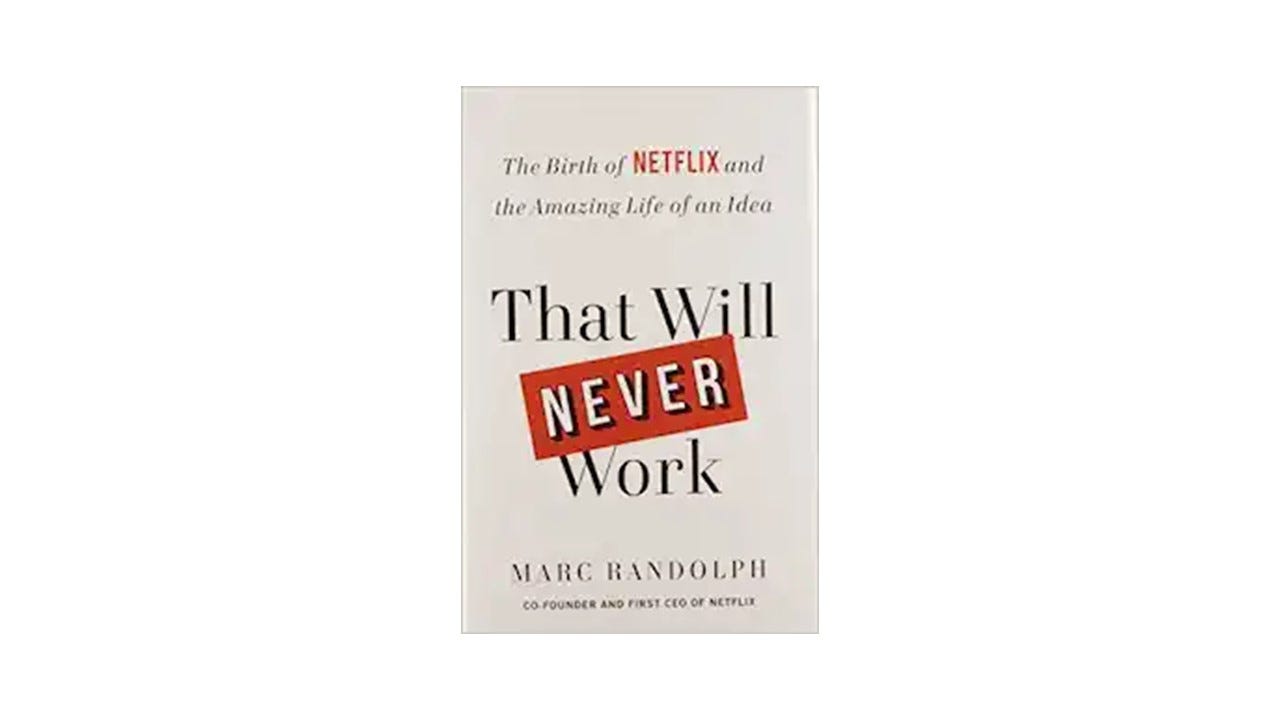Stock-Based Compensation at Tech Companies
Non-cash employee payments are added back to operating income to showcase profitability - why is that? By Benjamin Tan

In the book That Will Never Work, co-founder Marc Randolph writes about early hiring at Netflix ($NFLX) back in 1997. Their original mission was to create a DVD rental-by-mail business, which at that time was novel and anti-establishment, contrary to the video store model dominated by Blockbuster. Everyone who joined Netflix took a pay cut, relative to what one would have been paid working at mainstream corporations. The lure offered to would-be rebels was equity:
“Still, if I was going to ask everyone to sacrifice on behalf of our future success, I wanted them to participate once that success (hopefully!) arrived. While our salaries at that point were well below what might be available elsewhere, each of those early employees received a large stake in the business in the form of stock options. They wouldn’t be making a lot up front—but we were betting on ourselves that the eventual payoff would be huge”
Early hires who took upfront risks joining Netflix, long before it became a FAANG stock, would have enjoyed huge payoffs. But this observation comes with survivorship bias. For every Netflix employee, there were many others who took equity at Webvan, Theranos, and Pets.com. Cautionary tales abound and many job-seekers are well-aware of the downside risks when joining unproven outfits.
Choice to Work at Establishments or Loss-Making Companies
Over the course of 2021, Alphabet ($GOOG) increased its headcount by 14%, adding 20,000 employees across multiple functions. Salesforce ($CRM) was even more aggressive, expanding by almost 30% from 56,600 to 73,500 employees during its fiscal year ended January 2022. Both of them are marquee names, even to those who do not work in the industry. Recruitment narratives from Alphabet and Salesforce - backed by branding, swanky offices, strong profitability, pristine balance sheets, and attractive salary offers - rise above noisy competition for talent.
So what can smaller, GAAP loss-making and less prominent technology companies do in a tight labor market? Offering upside participation in the form of stock-based compensation (SBC) is often the standard answer, especially when trying to fill key roles in high-demand areas like enterprise sales, software development, data science and artificial intelligence. When business is not (yet) gushing cash, equity issuance is a proven way to entice joiners who could have taken up safer (and cash-rich) options elsewhere. The probability-weighted size of eventual payoff also needs to outweigh the odds of their employer getting obliterated by Big Tech or incumbents.
Below is a sample of SBCs at software companies (across a wide range of revenues) in their last reported fiscal years:
For smaller players like Coupa ($COUP) and Jfrog ($FROG), it is almost better to be generous with stock compensation and have the right people share a growing pie, than to withhold upside and end up with a sub-par army fighting a losing battle.
Zscaler versus Palo Alto Networks: Cyberwar for Talent
A name in the software space that has raised more than a few eyebrows for paying an increasing proportion of revenues out in the form of equity compensation is Zscaler ($ZS). Cybersecurity is one of the most in-demand sectors within the information technology industry. To keep up with hypergrowth, Zscaler has been aggressive filling sales and engineering positions in recent years, despite tight labor market conditions. It also faces competition from Palo Alto Networks, a leader in the space with 5x more revenue. But even the Goliath of cybersecurity needs to pay up: SBC as a percentage of FY 2022 revenue was 19%.
When asked by an analyst about potential dilution concerns, Zscaler founder and CEO Jay Chaudhry responded:
“…what I can say is, our stock-based compensation, as we go forward, will decrease as a percentage of revenue. What happens is that when you get to a certain scale as a company…stock-based compensation goes down. We'll follow the same path as the large companies, you'll see our stock base coming down over a period of time”
And so GAAP and non-GAAP numbers reported by Zscaler are in stark contrast. For FY 2022, GAAP net loss was $390mn, versus a non-GAAP net profit of $101mn. SBC was $430mn, which accounted for 87% of the adjustments.
If and when Zscaler manages to reach the heights and prominence of Palo Alto Networks or Salesforce, one can presume that management will be far more judicious with SBC because it will have become more mainstream draw too jobseekers by then.
But that is a big if and the when is not specified.
Adjusting for SBC to Showcase Profitability
With a softer economy, many technology companies like Meta ($META) and even Salesforce are reducing or pausing headcount. Bargaining power when negotiating employment terms is likely to shift in favor of employers again after years of wage inflation. But in the long-run, smaller companies issuing significant equity compensation will likely to remain a feature, not a bug. It is still an effective recruitment tool to conserve cash capital and provide proper incentives to attract or retain risk-takers to fight uphill battles.
The Netflix today does not have any problem attracting talents. Even Hollywood is clamoring to work with the streamer: gone are the days when industry elites would shun Netflix for being less than prestigious.
For its fiscal year ending December 2021, Netflix paid out a mere 1.4% of its revenue as stock-based compensation. It is now the establishment that others are fighting against.
Join Consume Your Own Tech Investing to receive a welcome email with the following:
Latest Top 10 conviction Consumer and Tech positions in my portfolio
Book recommendations on investing, consumer and technology sectors
One article delivered into your inbox every Tuesday
Preview of upcoming articles
Follow me on Twitter @ConsumeOwnTech and Commonstock @ConsumeOwnTech
Also, check out Daily Market Briefs, a fast growing daily newsletter that brings 16,000+ readers up to speed with the top finance and business stories around the world in under 1 minute!




